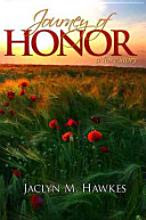 The Forgotten Skills of Self-Sufficiency Used by the Mormon Pioneers
The Forgotten Skills of Self-Sufficiency Used by the Mormon Pioneers
Author: Caleb Warnock
Publisher: Bonneville Books/Cedar Fort
Published Date: August 2011
Softcover; 143 pages
Genre: Nonfiction
ISBN# 978-1-59955-510-2
Reviewed by: Shanda
FTC FYI: free review copy in exchange for an honest review
Summary
Many people dream of becoming self-reliant during these times of fluctuating prices and uncertain job security. Using truly simple techniques, you can cultivate the pioneer’s independence to provide safety against lost wages, harsh weather, economic recession, and commercial contamination and shortages. Strengthen your family’s self-reliance as you discover anew the joy of homegrown food, thrift, and self-sufficient living.
First Line
“The first fruit of the garden is family. Then knowledge. Then vegetables.”
Review
Just two weeks ago, the residents of Utah celebrated Pioneer Day in honor of the arrival of the Mormon pioneers in the Salt Lake Valley in 1847. I appreciate the hard work and sacrifices these determined people showed throughout their lives. It seems such a shame that so much of their knowledge and work ethic has disappeared over the generations.
I was surprised to read that our ancestors harvested nearly all year long, including during the winter. I am several generations removed from my farming and pioneering ancestors, so I was unaware of several of the aspects of self-sufficiency that the author talks about.
Did you know carrots were originally yellow and purple? I didn’t.
Did you know it’s possible to grow and harvest salad greens in the snow? I can’t wait to try growing some.
In the age of supermarkets and fast food, it would do mankind good to return to a degree of self-sufficiency. In the timeline of history, grocery stores and processed “food products” are brand new concepts. We have become so accustomed to the appearance and taste of the items lining the shelves that it makes one wonder how people lived without Doritos, Oreos, and Diet Coke.
The first half of The Forgotten Skills of Self-Sufficiency covers heirloom plants and seeds, expanding the harvest, and storing the harvest. The author shows several examples of these concepts in his own garden and root cellar. He briefly covers pioneer yeast and bread making, then moves on to how to raise and care for your own chickens for the remainder of the book.
While covering several interesting topics, this book doesn’t get into a lot of specifics of how to do these things and does reference additional material. If you have been feeling the pull toward becoming more self-sufficient and are interested in getting a good overview and general direction, The Forgotten Skills of Self-Sufficiency is a good place to start.
Find The Forgotten Skills of Self-Sufficiency on:
GOODREADS | AMAZON | KINDLE | DESERET BOOK | SEAGULL BOOK
***EDIT***
From author Caleb Warnock (with permission):
“My book, Forgotten Skills of Self-Sufficiency Used by the Mormon Pioneers, was recently reviewed on your site by Shanda. I am grateful that you took the time to do the review. I was astonished, however, to find Shanda saying that there is little instruction for the reader, and that my book instead references readers to other sources. The review also does not mention that this book is a national bestseller. My book is about how we live at our house. Every photo is from our garden. The book is full of instruction for the reader – step by step instructions on hand-pollinating, where to get open pollinated seed, how to tell the difference between male and female blossoms, detailed methods for using pioneer yeast, step-by-step recipes, exactly how to cellar vegetables without a root cellar, and much more. I’m concerned that the review is unfair and misleading and unsupported. Could someone please contact me as soon as possible so we can discuss this?”
From Shanda:
“Hi Caleb,
Thank you for contacting me about your concerns. I can see where you are coming from, though I can assure that I did not say there is “little instruction” or that it “instead” refers readers to other sources. My intention was to say that the book is not an exhaustive resource and it DOES refer readers to other sources. My full intent was to give Forgotten Skills a positive and honest review, and encourage readers who are interested to search out Forgotten Skills first, then follow up with the resources you recommend. I apologize that my review did not come across that way, though I certainly wouldn’t consider my review intentionally unfair, misleading or unsupported. As far as Forgotten Skills being a national bestseller, I didn’t include that information because I didn’t know that it was a national bestseller.
To remedy this situation I will, with your permission, update the review to include your concerns as stated below, as well as my reply to them. I can assure you, though, that I do not waste my time reviewing books that I don’t consider useful or of interest to both me and the LDSWBR blog readers. I specifically requested Forgotten Skills from Cedar Fort for review. It is unfortunate that the wording of my review turned what was intended to be a positive and supportive review into one of concern.
Thank you,
Shanda”


